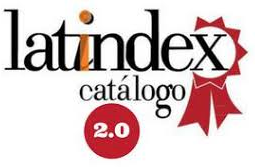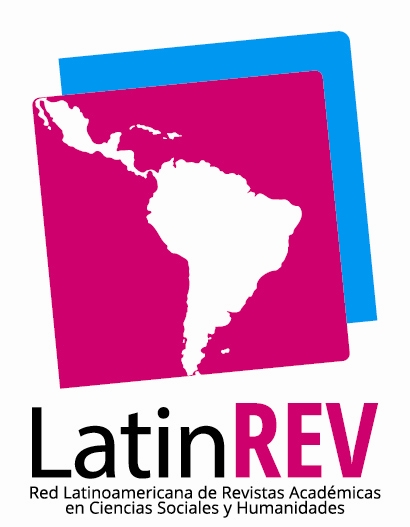What are children like? Historical constructions and social meanings of childhood among educators and caregivers
Keywords:
childhood, child, meaning, educators, Plan Sala CunaAbstract
In this paper, we present a series of reflections that emerge from our work experience during the year 2019, in two salas cunas (nurseries) located in different areas of the city of Córdoba, Argentina -southeast and northwest. We propose to address the meanings and feelings associated to childhood developed by teachers and caregivers who work there. We start from the notion of childhood as a social and cultural construction. We also acknolwledge the junction of different philosophical and epistemological views in the construction of stereotyped images of childhood, which are still disputed in social institutions and common sense. The study was conducted through an expressive-creative methodology, with the aim of promoting modes of inquiry and reflection that exceed the spoken language, in order to rethink the place of childhood in our societies. To this end, we hosted meetings/workshops with teachers and caregivers of daycare centers, which gave rise to the problematization of some preconceptions emerging from the hegemonic adult-centric view and the "idealized childhood" of the advertising discourse. The different meanings that emerge throughout this work are not presented as opposite ones, but rather as rearticulated concepts permeating the possibilities of being and doing as children. These stereotyped models obstruct the understanding of the complexity presented by "real" childhood, thus assigning it a particular place in the social order as opposed and subordinated to the adult world.
Downloads
References
Alfageme, Erika; Martínez, Marta y Cantos, Raquel (2003). De la participación al protagonismo infantil. Propuestas para la acción, Madrid: Edición Plataforma de Organizaciones de Infancia.
Álvarez, Juan Ramón (2010), “La naturalización de la cultura en las ciencias biológicas”, en Biblio 3W. Revista Bibliográfica de Geografía y Ciencias Sociales, Vol. XV, N° 873. Recuperado de: http://www.ub.es/geocrit/b3w-873.htm (16/11/2010).
Alves Pereira, Vilmar (2011). “Descartes e Rousseau: Leituras antagônicas de infância e subjetividade”, en POIÉSIS - Revista do programa de pós-graduação em educação- 4 (7), Universidade do sul de Santa Catarina, 20-37.
Ariès, Philippe (1962). El niño y la vida familiar en el antiguo régimen. Recuperado de: http://iin.oea.org/Cursos_a_distancia/El_nino_y_la_vida_familiar.pdf (03/08/2019).
Bourdieu, Pierre (1990). “La "juventud" no es más que una palabra”, en Sociología y cultura, Editorial Grijalbo/CONACULTA, México, 163-173.
Bustelo, Eduardo (2012). “Notas sobre infancia y teoría: un enfoque latinoamericano”, en Salud Colectiva, 8 (3), Universidad Nacional de Lanús, 287-298. Recuperado de: https://www.redalyc.org/pdf/731/73125097004.pdf (17/03/2017).
BUSTELO, Eduardo (2007). El recreo de la infancia. Buenos Aires: Siglo XXI Editores.
Caldo, Martín; Graziano, Nora; Martinchuk, Elizabeth; Ramos, Maura (2012). “La infancia en las representaciones de los maestros y las maestras Avances de una investigación en proceso”, Perfiles Educativos, Vol. XXXIV, Nº135, UNAM.
Carli, Sandra (2006). “Notas para pensar la infancia en la Argentina (1983-2001): figuras de la historia reciente”, en Carli (comps.), La cuestión de la infancia. Entre la escuela, la calle y el Shopping, Buenos Aires: Paidós, 19-54.
Carli, Sandra (2005). Niñez, pedagogía y política. Transformaciones de los discursos acerca de la infancia en la historia de la educación argentina entre 1880 y 1955, Miño y Dávila, Universidad de Buenos Aires, Buenos Aires.
Carli, Sandra (2001) “La infancia como construcción social. Imaginarios, proceso históricos y desafíos educativos contemporáneos”, en Carli, S (Comp.), Infancia, Cultura y Subjetividad. Buenos Aires, Ed. Santillana.
Carli, Sandra (1994). “Historia de la infancia: una mirada a la relación entre cultura, educación, sociedad y política en Argentina”, en Revista Argentina de Educación, Asociación de Graduados de ciencias de la educación, 3-11. Recuperado de: http://repositorio.filo.uba.ar/bitstream/handle/filodigital/4900/CArli.pdf?sequence=1&isAllowed=y (15/03/2017).
Cullen, Carlos (2004). “Racionalidad y educación. Problemas teóricos y epistemológicos de la educación”, en Cullen (comp.), Filosofía, cultura y racionalidad crítica. Nuevos caminos para pensar la educación, Buenos Aires, Editorial Stella/La Crujía, 17-45.
Cussiánovich, Alejandro (2010). “Paradigma del protagonismo”, en INFANT, Materiales de Trabajo N°2, Lima: IFEJANT.
Descartes, René (2007). El discurso de método. Valladolid: Maxtor.
De Souza Minayo, María Cecilia; FERREIRA DESLANDES, Suely; CRUZ NETO Otávio, GOMES, Romeu (2007). Investigación Social. Teoría, Método y Creatividad, Ed. Buenos Aires.
Dotro, Valeria (2007). La infancia entre la inocencia y el mercado, Ministerio de Educación, Ciencia y Tecnología de la Nación, Dirección Nacional de Gestión Curricular y Formación Docente Área de Desarrollo Profesional Docente, Argentina. Recuperado de: http://repositorio.educacion.gov.ar/dspace/bitstream/handle/123456789/95859/sunshine_Dotro.pdf?sequence=1 (10/03/2021).
Foucault, Michel (2002). Vigilar y castigar, nacimiento de la prisión, Buenos Aires, Editorial siglo XXI (versión original, 1975). Recuperado de: https://www.ivanillich.org.mx/Foucault-Castigar.pdf (08/09/2016).
Gaitán, Lourdes (2006). Sociología de la infancia, Síntesis, Madrid.
Gentile, M. F. (2011). Niños, ciudadanos y compañeritos: un recorrido por los distintos criterios para el trabajo de inclusión social de niños y adolescentes de sectores vulnerables. en I. Cosse, V. Llobet, C. Villalta y C. Zapiola (Comps.), Infancias: políticas y saberes en Argentina y Brasil (siglos XIX y XX) (pp. 265-286). Buenos Aires: Teseo.
Giberti, Eva (1997). “La niñez y el hacer política”, en La niñez y sus políticas. Políticas de los adultos dirigidas a los niños y políticas de la niñez creadas por los niños y las niñas. Eva Giberti (comp.) Buenos Aires, Editorial Losada.
Huergo, Juliana e Ibáñez, Ileana (2012). “Contribuciones para tramar una metodología expresivo-creativa. Ejercicio de lectura de dibujos de mujeres de Villa La Tela, Córdoba”, en Revista Latinoamericana de Metodología de la Investigación Social - ReLMIS. Nº 3, Año 2 (abril-septiembre 2012), Estudios Sociológicos Editora, ISSN 1853-6190, 66-82. Recuperado de: http://www.relmis.com.ar/ojs/index.php/relmis/article/view/56/30 (5/12/2015).
Ibañez, Ileana (2019). Infancia (s) y Experiencia (s) en una ciudad socio-segregada: Violencias, Afectividades y Creatividad, Córdoba (2008-2012), Tesis Doctoral, Centro de Estudios Avanzados (No publicado).
Llovet, V. (2010). ¿Fábricas de niños? Las instituciones en la era de los derechos de la infancia. Buenos Aires: Noveduc.
Montero González, Martha Soledad (2008). “El Emilio: niño y educación”, Cuadernos de Lingüística Hispánica, Nº. 12, 91-112.
Pavez Soto, Iskara (2012). “Sociología de la Infancia: las niñas y los niños como actores sociales”, en Revista de Sociología, N27, 81-102. Recuperado de: https://revistadesociologia.uchile.cl/index.php/RDS/article/view/27479 (15/03/2021).
Puiggrós, Adriana (2000). Educación neoliberal y alternativas. En: Buenfil Burgos. Los márgenes de la educación. México: Plaza y Valdez.
Rabello De Castro, Lucia (2001). Infancia y Adolescencia en la Cultura del Consumo, Bs. As.: Grupo Editorial Lumen.
Sarat, Magda (2012). “Proceso Civilizatorio, Infancia y Educación: Contribuciones de Norbert Elias”, en Subje/Civitas, n9 enero-junio. Recuperado de: http://www.subjecivitas.com. mx/num9/sarat_proceso_civilizatorio.pdf (15/03/21).
Tilly, Charles (2000). La desigualdad persistente. Buenos Aires: Manantial.
Williams, Raymond (2000). Marxismo y Literatura. Barcelona: Península/Biblos.
Zapiola, María Carolina (2006). “¿Es realmente una colonia? ¿Es una escuela? ¿Qué es? Debates parlamentarios sobre la creación de instituciones para menores en la Argentina, 1875-1890”, en Lvovich, Daniel y Suriano, Juan (Ed.), Las políticas sociales en perspectiva histórica. Argentina, 1870-1952, Universidad Nacional Gral. Sarmiento. Buenos Aires: Prometeo.
Downloads
Published
Issue
Section
ARK
License
Copyright (c) 2021 María Julia Angeli, María Laura Simoni

This work is licensed under a Creative Commons Attribution 4.0 International License.










